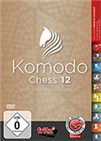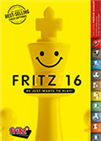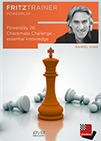License to castle
The "Queen City of the Prairie Open" tournament was held in Cabela’s Conference Center, a large room that, on July 28th, was divided by a removable wall into two rooms. Competing in an Open section and a Reserve (under 1200 rated) section, chess players didn’t make much noise. But we could hear the adjoining room’s License To Carry (LTC) class. In Texas, a person is eligible for a license to carry a handgun if at least 21 years old and a resident in Texas for six months, barring certain criminal convictions, mental illnesses, or substance abuse. The LTC classroom instruction covered topics such as handgun use and safety.

Tournament room | Photo: Alexey Root
My first round opponent, Martin Bode, said he heard every word of the instruction. In contrast, I perceived the instructor’s voice as background noise. Maybe I should have paid attention to the instructor’s safety message, however, so I would not have been so reckless with my chessmen.

19.Bxg4 Here I thought that Black would definitely play 19...hxg4. I figured I would get play with 20.Ne2 followed by doubling rooks on the h-file. I wanted to call this article "Hunting for Kings" so figured that a speculative sacrifice to attack the black king was in the spirit of the article. However, better was 19.d5 as my move turns White's advantage into an equal game.
19...Qg6 After the game, my opponent told me that since I had a high rating he figured my sacrifice must be sound. So I benefitted from him believing that I knew what I was doing with 19.Bxg4?! Unfortunately for my opponent, Black refusing the sacrifice meant he lost immediately. 20.Bxh5 Qxg2 21.Ne2 And Black resigned, as 22.Rdg1 is a crushing threat. 1-0
Chess and Education
The unexpectedly quick finish to our game meant that Martin Bode and I had time for a post-mortem and conversation. Bode teaches special education at Seagoville Middle School. Last school year, 2017-2018, his students were all boys with autism spectrum disorder. Bode also runs the school’s chess club. His club’s top player last year was a student from his special education classroom.
The Saint Louis Chess Club issued a call for research about chess and autism. I forgot to mention this research call to Bode, as I was busy quizzing him about his employer, the Dallas Independent School District (ISD). My son William begins his music teaching career at two Dallas ISD schools this fall. Bode told me that the Dallas Independent School District offers each chess club coach a $1500 stipend per year.
Money is not why most teachers start chess clubs. Bode told me that he ran a chess club at his prior school for free, unaware that there was a stipend available. However, stipends make it easier for teachers to say yes to chess, since stipends are also available for other worthwhile activities. For example, Bode told me that he will likely also coach debate in this coming school year (2018-2019) and receive a stipend for his debate coaching too.
Between rounds three and four, I sat in Cabela’s Mesquite Grill with Open section player Chris Wood and Reserve section player Doug Stephens. I told them about Dallas ISD’s $1500 stipend and that Brownsville ISD also pays a stipend to each teacher who also sponsors chess (PDF search for "chess"). Wood replied that this stipend information will help him approach his home district, Arlington ISD.
Likewise, ChessBase readers could use this stipend information when requesting chess in their children’s schools. Since teachers are being paid to run chess clubs at some schools, the case could be made for a teacher at your child’s school to likewise be paid. Research on chess in education might also grow, with “before chess” and “after chess” comparisons possible at more schools when more teachers begin chess clubs.
Reasons to play in chess tournaments
I was excited to email my son William about the $1500 stipend, as William is one reason that I played in the Queen City of the Prairie Open. In 2015, when William was chess club president at the University of North Texas (UNT), he ran the first US Chess rated tournament for the UNT chess club. Two of the participants in that 2015 tournament were Louis A. Reed, Jr., and his daughter, Ambriette. Louis and Ambriette, along with Louis’s wife Wendy and his sons Louis A. Reed III and Zaven, are the backbone of the Alliance (TX) Chess Club. The Queen City of the Prairie Open was the first US Chess rated tournament for the Alliance Chess Club, so I wanted to play in it because the Reeds had participated in my son’s tournament.
 In computer chess there is no getting past Komodo, a two-time ICGA Computer World Chess Champion. Find out how Komodo can take your game to the next level!
In computer chess there is no getting past Komodo, a two-time ICGA Computer World Chess Champion. Find out how Komodo can take your game to the next level!
Zaven Reed, Louis A. Reed III, Wendy Reed, Louis A. Reed, Jr., Ambriette Reed, Candy (the dog). Photo: Reed family
What reminded me about the Reeds was their participating (Wendy and Ambriette as players; Louis A. Reed, Jr. as a volunteer) in the 2018 Texas Women’s Championship, June 22-23, which was my return to tournament chess after playing in two UNT tournaments in 2015. Four players from the Texas Women’s Championship (Wendy, Ambriette, me, and WFM Devina Devagharan) also played in the Queen City of the Prairie Open. I will play in the 2019 Texas Women’s Championship too.
Though I felt good about supporting the Reed family/Alliance Chess Club by playing in their Queen City of the Prairie Open, I was hesitant to play at Cabela’s even before I heard the LTC classroom’s noise. I prefer live animals to dead ones. There is an aquarium of live fish at Cabela’s, and the Reeds brought their dog Candy to Cabela’s. But taxidermied animals outnumber live animals at Cabela’s.
 Fritz 16 is looking forward to playing with you, and you're certain to have a great deal of fun with him too. Tense games and even well-fought victories await you with "Easy play" and "Assisted analysis" modes.
Fritz 16 is looking forward to playing with you, and you're certain to have a great deal of fun with him too. Tense games and even well-fought victories await you with "Easy play" and "Assisted analysis" modes.
(Above and below) Examples of taxidermied animals at Cabela’s (click or tap to enlarge) | Photo: Alexey Root
 Talking with Sarah May, who finished second in the Open section, was a welcome distraction from dead animals, as May’s job is to keep animals alive. As of July 28, May had completed two weeks of a 10-week internship at the Fort Worth Zoo. Her paid internship is in Animal Nutrition. When her internship ends, May is moving to Decatur, Alabama, for a job in Animal Nutrition at a museum there. I thought of May during round 4, as the loudspeaker was playing “Sweet Home Alabama.” Chess players heard country music and store announcements (“Please meet your party at the front” “Apply for a Cabela’s credit card”) during each of our games.
Talking with Sarah May, who finished second in the Open section, was a welcome distraction from dead animals, as May’s job is to keep animals alive. As of July 28, May had completed two weeks of a 10-week internship at the Fort Worth Zoo. Her paid internship is in Animal Nutrition. When her internship ends, May is moving to Decatur, Alabama, for a job in Animal Nutrition at a museum there. I thought of May during round 4, as the loudspeaker was playing “Sweet Home Alabama.” Chess players heard country music and store announcements (“Please meet your party at the front” “Apply for a Cabela’s credit card”) during each of our games.
When May and I talked, I mentioned my daughter Clarissa, as Clarissa had a paid internship in the summer of 2013 at the Houston Zoo and is now a veterinarian at Summertree Animal & Bird Clinic. May said she thought about going to vet school but is excited to have a job helping animals immediately after finishing her undergraduate degree at Iowa State University.
 Checkmate. That's the aim of the game. There are numerous ways to checkmate the enemy king, but there are common patterns that recur over and over again, and having these at our mental fingertips is essential for when we want to finish the game.
Checkmate. That's the aim of the game. There are numerous ways to checkmate the enemy king, but there are common patterns that recur over and over again, and having these at our mental fingertips is essential for when we want to finish the game.
May and fellow Open section participant Douglas Schwetke at Cabela’s "African Shoot Out" | Photo: Alexey Root
May chose to play in the Queen City of the Prairie Open to meet other top women players in the Dallas-Fort Worth Metroplex. Three of the four highest rated players in the Open section (me, May, and Devagharan) were women. Devagharan and May drew in round four.
Tournament organizer and director Louis A. Reed, Jr. emailed me, after the tournament ended, "I also want to thank you very much for playing in our tournament. I think the fact that you were playing in it helped to significantly raise the interest of other strong players." My thanks to Louis A. Reed, Jr. for organizing and directing the Queen City of the Prairie Open, which allowed me to spend time with friendly people (the Reeds and the other participants) and play interesting games too.
My son William also thought that my name appearing on the advance entry list got others to play, as they have good chances to defeat me and gain rating points. That is, I am "floored" at 2000 in the US Chess rating system since my peak US Chess rating was 2260. And I play worse than most people rated 2000: My non-floored "quick" rating is 1901. My last round opponent, Eric Tipton, told me before our game that he prepared specifically for me. Though I had an advantage for most of our game, in our mutual time trouble I repeated the position rather than going for the win. Our draw put Tipton, me, and four others in a tie for third place.

First place in the Open section was Jacob Daniel Villa. The photo shows Tipton and Villa browsing the gun selection at Cabela’s. However, that’s a chess set in Villa’s black bag, not a gun! | Photo: Alexey Root
Hunting and Chess
First place in the Open section was Jacob Daniel Villa. The photo shows Tipton and Villa browsing the gun selection at Cabela’s. However, that’s a chess set in Villa’s black bag, not a gun!
In the United States, few people hunt but even fewer play tournament chess. According to Outdoor Life, "In 2016, just 11.5 million people hunted. That’s less than four percent of the national population." To hunt in Texas, one must acquire a hunting license. Other U.S. states charge similar fees. Likewise, one must join the US Chess Federation to play in US Chess-rated tournaments. Only 85,000 people are members of the US Chess Federation. The US population is 325.7 million.
Public attitudes about hunting, especially the trophy hunting showcased in Cabela’s displays, are more negative than public attitudes about chess. For example, a 2014 survey (PDF published in 2017) of 825 U.S. residents found that, "87% of respondents agreed that it was acceptable to hunt for food. However, only 37% agreed that it was acceptable to hunt for a trophy." In contrast, according to this 2012 ChessBase article, people ranked chess significantly higher than any other game or sport and 15% of U.S. respondents to the survey played chess within the past year. In the United States, the start-up costs to become a rated chess player (US Chess membership plus chess supplies) are lower than the costs to become a hunter (state hunting license plus hunting supplies). I look forward to readers’ thoughts on why there are more licensed hunters than tournament chess players, or comments on the other topics mentioned in my article.
All available games - Open
The Smith-Morra Gambit (1.e4 c5 2.d4!) is a great attacking weapon against the popular Sicilian . On move two White sacrifices a pawn for fast development and good attacking chances, and Black can easily fall into one of the many devious opening traps.
All available games - Reserve
Learn to think strategically, try out tricky mental exercises and master fun and exciting challenges – all with a generous helping of chess knowledge.
























